South Africa
South Africa, which has struggled to obtain Covid vaccines too rare, too expensive before launching its immunization campaign with much delay, is now facing a disturbing rejection of the vaccine by part of its population.
In front of this vaccination center in Johannesburg, the queue was getting longer and longer until a few weeks ago. Today, only three people are there, lost in this huge gymnasium requisitioned since the beginning of the mass vaccination in May, their sleeves rolled up for the injection.
Parked in front of the entrance, Muzi, a 32-year-old minibus cab driver, looks at it with a bad eye. "I am very afraid of the vaccine," he tells AFP. He then tells of knowing a woman, who he says died from being vaccinated: "She was perfectly fine before".
To date, only 11% of adults in a population of 58 million are fully immunized. The country officially the most affected in Africa is currently vaccinating people over 35 years old and is opening up on Friday to people over 18 years old. South Africa already has more than 2.6 million cases and nearly 78,700 deaths.
But despite the ever-rising numbers, fewer than 200,000 people a day are coming forward to be vaccinated, below the target of 300,000. The government plans to vaccinate 28 million people by the end of the year, or 70% of adults.
The country is experiencing "apathy or vaccine fatigue," Nomafrench Mbombo of the Western Cape provincial health department warned Thursday.
The government had been roundly criticized for its delay in getting into the vaccine procurement race. But it has since succeeded in obtaining tens of millions of doses and South Africa has even become the first country on the continent to produce vaccines locally.
Lori Bentley, 59, stood in line outside the gym. But in her family, she is one of the few who believe the vaccine will work. According to her relatives, scientists "couldn't develop an effective vaccine in such a short time," she says.
- "Sex strike" -
The rejection by men in South Africa is of particular concern, according to a recent study. In the country, 60% of those vaccinated are women, the Minister of Health recently expressed alarm.
To push men to get vaccinated, the South African poet and actress Lebogang Mashile has called on South African women to go on a "sex strike". "For our sake, women must condition +pumpum+ (sex) on vaccination," she tweeted.
The government, for its part, has attempted a targeted SMS campaign asking "all men in South Africa to register" for the vaccine.
But according to health journalist Pontsho Pilane, lack of trust in the government is also a factor. The authorities, for their part, accuse the anti-vaccine movement of being responsible for conducting a misinformation campaign.
According to a study conducted in July by the University of Johannesburg, skeptics cite three main concerns: side effects, vaccine effectiveness and distrust of the vaccine and/or institutions.
In vaccination centers that are operating at a trickle, some caregivers have issued calls to come in for vaccination on social networks. At the same time, several organizations, including mosques, farms, mines, pharmacies and insurance companies, have opened vaccination sites to facilitate access to the vaccine.



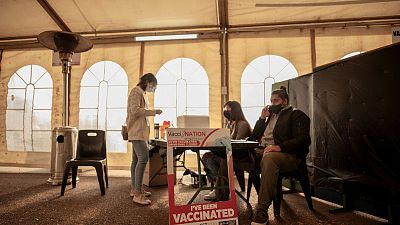

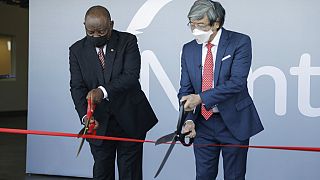
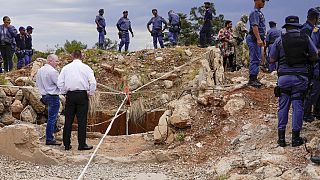
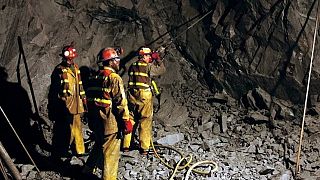
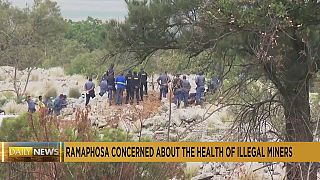



01:08
Mpox: Nine most affected countries to receive vaccines
01:08
Africa reports 134 new polio cases on World Polio Day
Go to video
WHO grants first mpox vaccine approval to ramp up response to disease in Africa
01:31
WHO and Africa CDC launch response plan to the mpox outbreak
01:01
Second phase of polio immunisation drive underway in Gaza
01:10
Cameroon reintroduces measures to curb COVID-19 resurgence